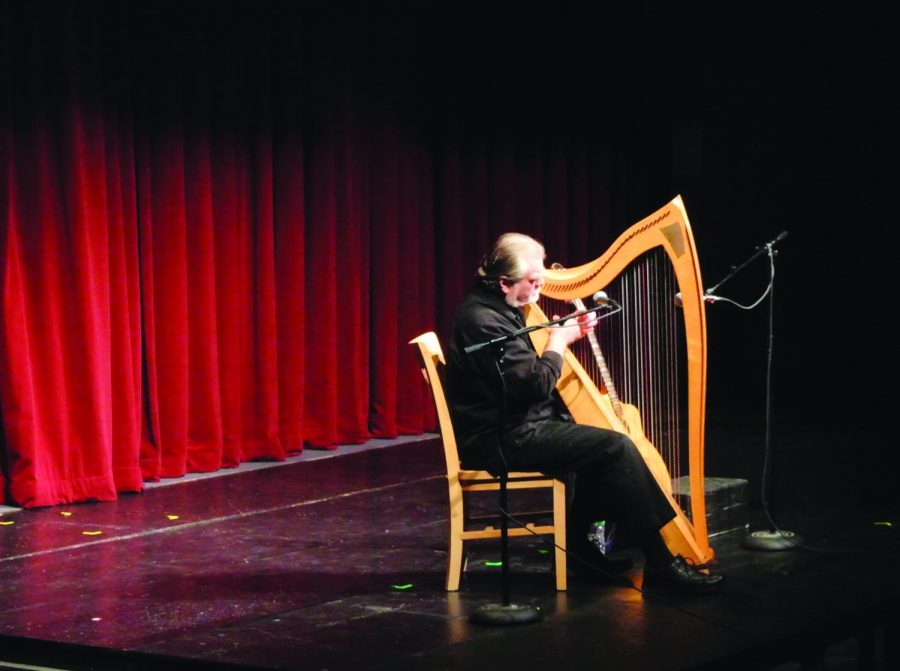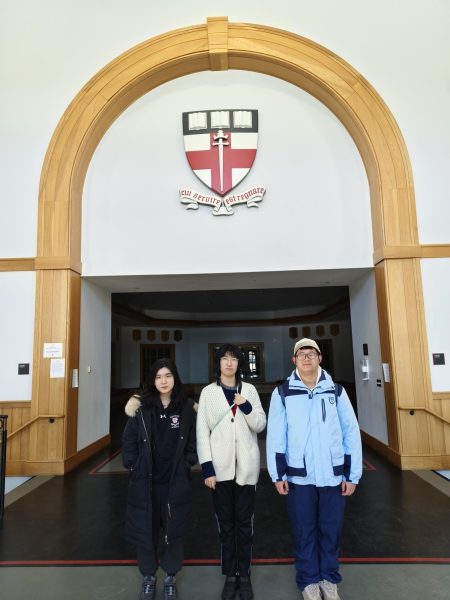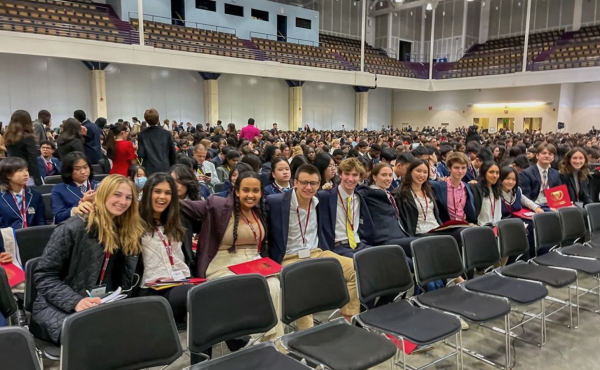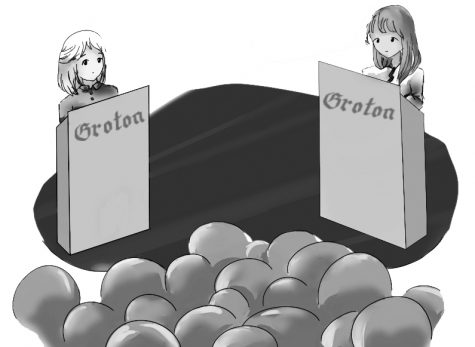Master Storyteller Odds Bodkin Comes to the Circle
On Friday, January 26, master storyteller Odds Bodkin presented his adapted rendition of Book I of the Iliad in the Campbell Performing Arts Center (CPAC), accompanied by his harp and his 12-string guitar.
Based in New England, Mr. Bodkin performs his versions of a variety of folktales and epics taken from numerous traditions, including ancient Greek, the Bible, and American legends such as that of Paul Bunyan.
Bodkin began with an introduction to the Iliad, in which he spoke of Greek mythology and the three themes he saw in Homer’s work: supernatural politics, the glory of a warrior’s death, and misogynistic treatment of captives. His story unfolded with the cause of the Trojan war – the judgement of Paris – then moved to telling the full book, a brutal tale of war, greed, and divine intervention.
While tuning his guitar before the performance, Mr. Bodkin told the story of how he became a professional storyteller. He began as a musician, and, since he “was a rebellious little boy and refused to play the piano,” turned to the guitar at about 12 years old. He largely taught himself and “learned to play the guitar by composing music on the guitar.”
After graduating college, Bodkin moved to New York, where he became interested in Jungian psychology. Interested in the workings of the human mind, he combined his musical background with “dramatic, mythical storytelling,” in 1982, working off the few folktales he knew, and discovered that he had “an ability to urge people to listen.”
Although he doesn’t read Ancient Greek, Mr. Bodkin has explored several translations of the Iliad. He argues, though, that the nuance isn’t as important as one would think: “…it’s not the scholarly depth of the story that I’m really focused upon; it’s the story itself.” In terms of the substance, though, Mr. Bodkin does his best to stay as close to the original as possible.
Nothing of this performance is ever written down, according to Mr. Bodkin. He uses the same structure of the original text, but improvises the details for each performance, depending upon “what the mood of the story’s asking for at the moment.” Bodkin thought of the theme for the introduction’s harp accompaniment the afternoon before his performance, and added that – along with numerous other variations – to his performance.
Creating and refining works is a long process for Mr. Bodkin. His most recent story is called Beowulf: The Only One, which he crafted over five years. He begins by “reading various versions of the story in whatever mythological sources I can find, [or] literary sources.” He then envisions characters and musical themes, after which he plays and performs the story repeatedly, and his stories change slightly with every performance. Nevertheless, he says that once different stories “codify themselves, they all have their own music.”
One of Mr. Bodkin’s goals for his performances is to engage the audience’s imagination, an experience that he finds all too rare “in an age of saturation of information and imagery beyond the ken and ability of humans to process fully without becoming anxious.” Linking skill in imagining to success in science, art, and other fields, Mr. Bodkin believes that stories can help people in many areas of their lives.
The reaction of the students to Bodkin’s performance was largely positive. Lwazi Bululu ‘20 appreciated “a new take on classical material” and that students of varying classical knowledge could all experience the high quality of the storytelling. Oliver Ye ‘20 said that, since “when you’re reading Latin, you focus a lot on the grammar… you often lose track of the story, and the storytelling brings back what’s inherently interesting about it.”












